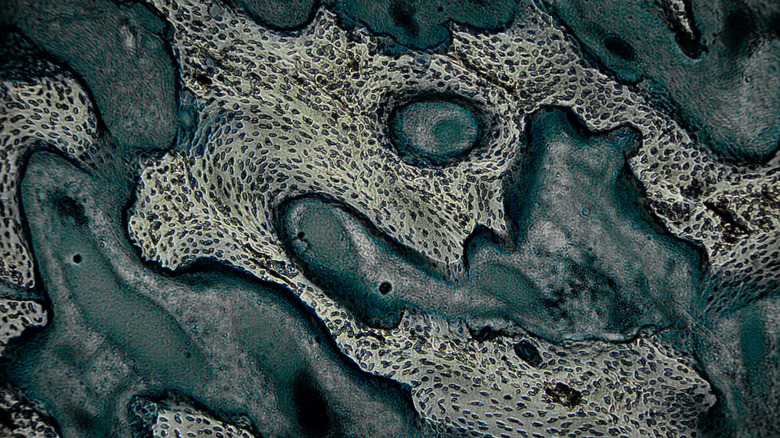What Would Happen If A Cell Didn't Have Ribosomes?
Cells are the smallest functional units of all living things. Inside the cells are specialized structures called organelles that help them perform certain functions. Ribosomes are organelles that create proteins. Cells use proteins to perform important functions such as repairing cellular damage and directing chemical processes. A single cell may contain up to 10 million ribosomes. Without these ribosomes, cells would not be able to produce protein and would not be able to function properly.
TL;DR (Too Long; Didn't Read)
Ribosomes are organelles found inside both plant and animal cells. Up to 10 million ribosomes may be present in a single cell. Ribosomes make protein by synthesizing RNA. Without these proteins, cells would not be able to repair cellular damage or even maintain their structure.
The Importance of Protein
The Importance of Protein
Ribosomes contain molecules called RNA. These molecules hold all of the instructions necessary for the ribosomes to carry out protein synthesis or the process of creating proteins. Proteins form from amino acids that link together to form chains. These protein chains help the body carry out certain functions.
For example, when a cell has damage from an outside source such as UV radiation, ribosomes create repair proteins that fix the cell's damaged DNA. Without these proteins, the DNA repairs would not happen, leading to mutations and problems such as cancer.
Other proteins make up hormones, such as insulin and growth hormone, which trigger specific reactions in the body. Many of these reactions are necessary to maintain life.
Without Ribosomes, Life is Impossible
Without Ribosomes, Life is Impossible
Without ribosomes to produce proteins, life as we know it would not be possible. To understand why, it helps to understand the specific functions of different proteins in the body.
Microtubules are proteins that provide cells with structural support and help chromosomes move throughout the cell. Without microtubules, cell division, in which chromosomes move to opposite ends of the cell, would not be possible. Cells would also have difficulty maintaining their shape without the structural support microtubules provide. This means that mobile cells, such as white blood cells or sperm cells, could lose their ability to move.
Centrioles are proteins which help determine the spacial arrangement of cells. Centrioles also organize microtubles into formations which help keep cells properly supported. Without centrioles, the cells' organelles would not stay in their proper places, and microtubules would not be able to function properly, which would leave cells unsupported and liable to lose their shape.
During cell division, chromatids pull apart at specific points. Proteins called kinetochores are at these points. They allow microtubules and spindle fibers to "grab" onto the chromatids and pull them apart. Without kinetochores, proper cell division would be impossible.
Histones are proteins which serve as "spools" for DNA to wrap around. Without histones, DNA would not have its compact, double-helix structure and would be too long to fit inside the chromosomes in a cell's nucleus. This means that genetic material could not pass on to other cells without histones.
Without ribosomes to produce proteins, cells simply wouldn't be able to function properly. They would not be able to repair cellular damage, create hormones, maintain cellular structure, proceed with cell division or pass on genetic information via reproduction.
Cite This Article
MLA
Cook, Maria. "What Would Happen If A Cell Didn't Have Ribosomes?" sciencing.com, https://www.sciencing.com/would-happen-cell-didnt-ribosomes-19003/. 26 April 2018.
APA
Cook, Maria. (2018, April 26). What Would Happen If A Cell Didn't Have Ribosomes?. sciencing.com. Retrieved from https://www.sciencing.com/would-happen-cell-didnt-ribosomes-19003/
Chicago
Cook, Maria. What Would Happen If A Cell Didn't Have Ribosomes? last modified March 24, 2022. https://www.sciencing.com/would-happen-cell-didnt-ribosomes-19003/
